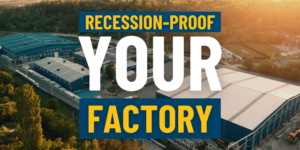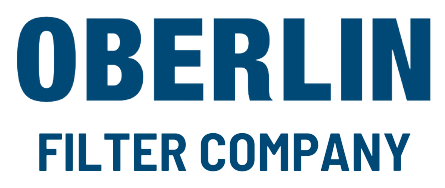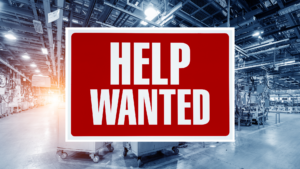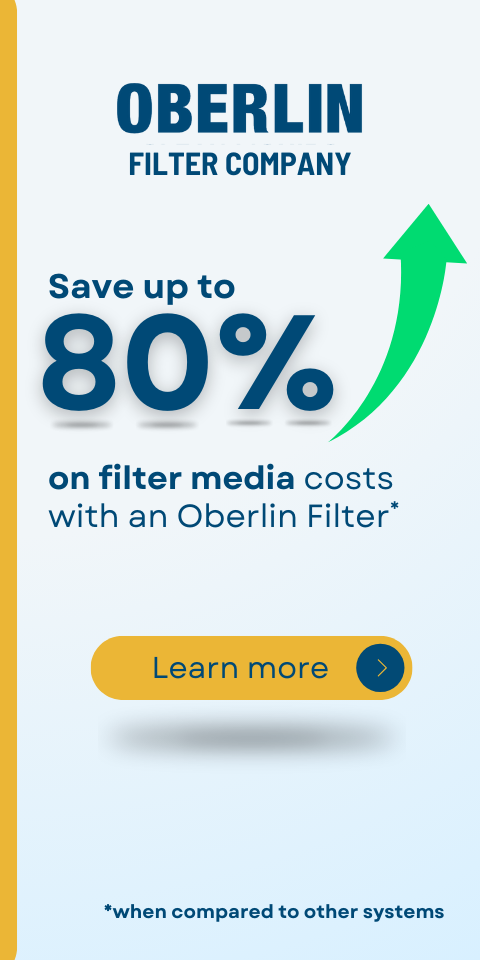
Is your filtration system filtering out your profit? Learn how common (and uncommon) filtration issues may be hitting your bottom line.
In industrial settings, there are plenty of ways that profit can drain away – from inefficient processes and equipment downtime to wasted raw materials and energy consumption.
However, one often overlooked culprit is poor filtration. Ineffective or inadequate filtration systems can quietly eat away at your bottom line, causing a range of problems that may go unnoticed until they result in significant financial losses.
Filtration is a key process for a variety of industries, from food and beverage production to oil and gas refining. And most of the time, it’s a process that goes relatively unnoticed… until something goes wrong. But it may be the small, seemingly insignificant inefficiencies that are nickel and diming your profits away.

Common Filtration Problems: The Usual Suspects (and a Few Surprising Ones)
Filtration systems – particularly those in industrial settings – are finely-tuned machines. And like all machines, they require regular maintenance and occasional repairs to function at their best. But even with proper maintenance, there are a few common culprits that can lead to filtration problems.
The Usual Suspects:
Inefficient removal of suspended solids: If your filtration system isn’t effectively removing contaminants from your liquids, you may end up with subpar product quality, leading to waste and customer dissatisfaction. This can result in increased product rejections, rework, and even customer loss.
Wet solids and retention of valuable liquids: If your filter cakes are retaining too much moisture, you’re essentially throwing away product or raw materials. This can be particularly costly in industries where the liquid itself is a valuable commodity, such as in oil and gas processing. Inefficient dewatering can lead to reduced yield and increased waste disposal costs.
Frequent filter maintenance and downtime: If your filtration system requires constant attention and repairs, it’s not only draining your maintenance budget but also cutting into your production time and capacity. Excessive downtime can lead to missed production targets, delayed shipments, and dissatisfied customers.
High disposal costs for waste liquids and solids: If your filtration process is generating excessive waste, you’re not only paying for the loss of potentially valuable materials but also incurring hefty disposal fees. Inefficient filtration can lead to increased waste volume, which means higher transportation and disposal costs and potential environmental compliance issues.
Premature filter media replacement: If your filter media is clogging too quickly or not performing optimally, you may find yourself replacing it more frequently than necessary. This can lead to increased consumable costs and additional downtime for filter changeouts.

Filtration Problems That May Surprise You
While common maintenance costs related to filtration are well-known, there are some unexpected problems that can arise and drive up your expenses even further. It’s these that may sneak away with your budget if you don’t address them quickly:
Bacterial growth and contamination: Poor filtration can lead to the buildup of bacteria or other microorganisms, which can contaminate your fluid. In some industries, such as food processing, this can also result in serious health and safety risks. Bacterial contamination can damage your brand reputation and lead to legal liabilities.
Unintended introduction of filter aids or additives: If your filtration process isn’t carefully managed, you may inadvertently allow unwanted substances into your product, compromising its quality and purity. This can be particularly problematic in industries with strict purity requirements, such as pharmaceuticals or electronics manufacturing.
Energy inefficiency: Filtration systems that are not optimized for energy efficiency can lead to higher power consumption and increased operating costs. This can be due to oversized pumps, inefficient filter media, or poor system design.
Incomplete removal of targeted contaminants: If your filtration system is not designed to handle the specific contaminants in your process, you may be leaving behind harmful substances that can impact product quality or cause downstream issues. This can be especially problematic in industries with stringent purity requirements, such as high-purity chemicals or semiconductors.

How Filtration Problems Translate to Profit Loss
The financial consequences of poor filtration can be significant from increased operating costs to reduced production efficiency. It’s when we ignore the importance of filtration and do not take proper precautions that we open ourselves up to potential profit loss.
Example 1: Inefficient Removal of Suspended Solids
Let’s say you’re a food processing company that produces 1,000,000 pounds of breaded chicken per day. If your filtration system is not effectively removing suspended solids, you may end up with charred oil and a product that has a lower quality than your customers expect. This could lead to increased product rejections and returns, and a large waste oil stream – leading to lost revenue and additional costs for disposal.
If the chicken is produced on four 1,500 gallon fryers, and the oil is disposed of once per week, that’s 6,000 gallons of oil dumped per week. A market price of $6 per gallon translates to a weekly loss of $36,000, or $1,872,000 per year. Add in unsaleable product, or potential damage to your brand reputation, and the financial impact becomes even more significant.
Example 2: Frequent Filter Maintenance and Downtime
Let’s consider a metalworking facility that uses a coolant filtration system to maintain the quality of its cutting fluids. If the filtration system requires frequent maintenance and experiences excessive downtime, it can have a cascading effect on production efficiency and costs.
If the filtration system requires an additional 2 hours of maintenance per week compared to a more efficient system, that’s 104 hours of lost production time per year. If the facility’s average hourly production output is valued at $10,000, that equates to a potential loss of over $1 million in annual revenue.
Frequent maintenance also means increased labor costs for your maintenance team and the potential for rushed or incorrect repairs that could lead to further downtime and quality issues down the line.

Trust Oberlin Filter Solutions With Your Bottom Line
Once you’ve identified filtration inefficiencies in your process, it’s time to take action to optimize your systems and protect your profits. While you could attempt to handle many of these issues in-house, partnering with a trusted filtration expert like Oberlin Filter Solutions is often more cost-effective and efficient.
With decades of proven experience in filtration system design, installation, and maintenance, we have the knowledge and resources to help you reduce your disposal costs and maximize the value of your wastewater.
Automatic Pressure Filtration Systems
Oberlin Filter specializes in automatic pressure filtration systems that deliver superior performance and reliability. These systems are engineered to handle a wide range of applications and can be customized to meet the specific needs of your process.
Unmatched Filtration Efficiency
Oberlin Filter’s automatic pressure filters can remove up to 99.99% of total suspended solids, ensuring a high-quality filtrate with minimal contaminants. This level of efficiency can help reduce product rejections, minimize waste, and improve overall process consistency.
Wide Range of Filtration Capabilities
Oberlin Filter’s systems can filter down to 1 micron, handling even the most challenging filtration applications. Whether dealing with fine particulates, high-viscosity liquids, or complex contaminants, Oberlin Filter has the expertise and technology to deliver effective solutions.

Expertise Across Industries and Applications
Oberlin Filter has extensive experience serving various industries, including food and beverage, chemical processing, metalworking, and more. This broad expertise allows them to apply lessons learned from one application to another, delivering innovative solutions that are tailored to your specific needs.
Don’t risk losing necessary profit to subpar filtration systems. Trust Oberlin Filter’s proven technology and expertise to provide reliable, high-performing solutions for your filtration needs. Contact us today to learn more and take the first step toward improving your filtration process.
JOIN OUR INDUSTRY NEWSLETTER
Your source for expert filtration knowledge, tips, and solutions to keep your operations running smoothly.



